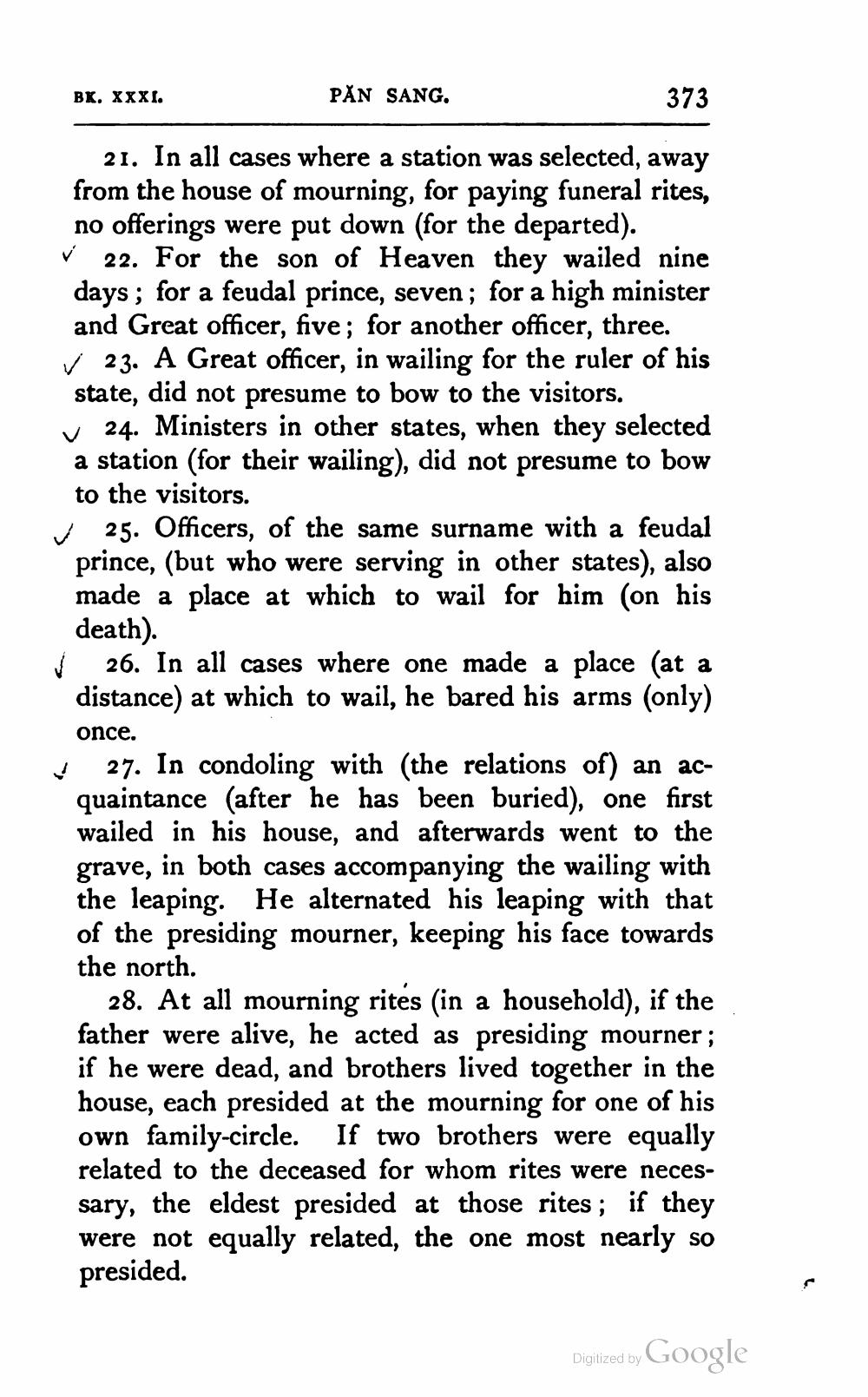________________
BK. XXXI.
PAN SANG.
373
21. In all cases where a station was selected, away from the house of mourning, for paying funeral rites, no offerings were put down (for the departed). v 22. For the son of Heaven they wailed nine days; for a feudal prince, seven; for a high minister and Great officer, five; for another officer, three.
23. A Great officer, in wailing for the ruler of his state, did not presume to bow to the visitors.
24. Ministers in other states, when they selected a station (for their wailing), did not presume to bow to the visitors.
25. Officers, of the same surname with a feudal prince, (but who were serving in other states), also made a place at which to wail for him (on his
death). ✓ 26. In all cases where one made a place (at a
distance) at which to wail, he bared his arms (only)
once. v 27. In condoling with (the relations of) an ac
quaintance (after he has been buried), one first wailed in his house, and afterwards went to the grave, in both cases accompanying the wailing with the leaping. He alternated his leaping with that of the presiding mourner, keeping his face towards the north.
28. At all mourning rites (in a household), if the father were alive, he acted as presiding mourner ; if he were dead, and brothers lived together in the house, each presided at the mourning for one of his own family-circle. If two brothers were equally related to the deceased for whom rites were necessary, the eldest presided at those rites; if they were not equally related, the one most nearly so presided.
Digitized by Google




